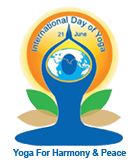| S.No | Country | Date and Year of Sign | Partner Agency | Areas of Cooperation | Major Accomplishments |
| 1 | Antarctic | 12th Sept 1983 | Antarctic Treaty Consultative Meeting (ATCM) | India is Consultative member of Antarctic Treaty since September 12, 1983 |
India as a fifteenth Consultative Member of the Antarctic Treaty, participates in the Annual meetings during which decisions relating to Antarctica are taken with the consent of all the Consultative Parties. |
| 1984 | Scientific Committee on Antarctic Research (SCAR) | India is a member of SCAR since 1984 |
India actively participates and contributes in generating high quality international scientific research in Antarctica and the Southern Ocean. Indian Scientists are now members of many Scientific Program committees to steer Antarctic Research. |
||
| 1985 | Convention on Conservation of Antarctic Marine Living Resources (CCAMLR) | India has acceded to the CCAMLR treaty in 1985 and become a permanent member along with 24 other nations |
India stands to gain experience from the management measures adopted in CCAMLR for sustainable management of marine living resources in Indian EEZ. By being a member in CCAMLR, India holds the option for exercising its rights for fishing but limiting to catch quota from CCAMLR’s convention area. |
||
| Council of Managers of National Antarctic Programs (COMNAP) | India is a member of COMNAP |
NCPOR is one among the 30 members of COMNAP as National Antarctic Programs. This is mainly for logistic coordination between countries who operate Antarctic Expedition. India is actively participating in all annual COMNAP meetings and India is the Vice Chairman of East Antarctica related Logistics and Operations. India had helped the Russian Logistics team by providing Indian Piston Bully vehicles when they were in need. Also, the Russian Ice breaker helped an Indian hired vessel when it was in distress during 2018-19 season. This could be possible only because of the COMNAP mechanism. |
|||
| 2 | Arctic Council | 2013 | Arctic Council | India is an Observer in Arctic Council since 2013 |
There are 6 working groups of Arctic Council and India is actively participating in most of the working groups. Also, India is actively contributing to the Arctic Council’s many subordinate bodies, such as Arctic University, Sustained Arctic Observing Networks, Arctic Migratory Birds initiative, etc. |
| 3 | BIMSTEC | 4th March, 2014 | BIMSTEC (Bay of Bengal Initiative for Multi-Sectoral Technical and Economic Cooperation) Member Countries | MoA on establishment of a BIMSTEC centre for Weather and Climate (BCWC) |
Weather forecasts are prepared in real-time for the BIMSTEC countries and are uploaded in MoES-NCMRWF website |
| 4 | CEOS | - | Committee on Earth Observation Satellites (CEOS) | MoES is an associate member of CEOS |
CEOS comprises of 34 members and 28 Associates from all over the world. MoES is an associate member of CEOS and is benefitted by the information on the various satellite missions all over the world. MoES is a prime user of the global Satellite data for monitoring, understanding and prediction of Weather, Climate and Ocean State. |
| 5 | EUMETSAT | 04.08.2020 01.10.2020 to 30.09.2023 (The Licence agreement ended on September 30, 2023) | Licence agreement EUMETSAT (European Organization for the exploitation of Meteorological Satellites) and IMD | The purpose of this agreement is to define the conditions under which IMD may use non-essential data and products generated by EUMETSAT’s geostationary Meteosat Satellites and its polar- orbiting Metop satellites. |
Under this agreement of IMD, NCMRWF is getting data through terrestrial link which is then assimilated in NWP model of forecasting. |
| 6 | Montevideo, Uruguay | 24th Feb 2022. (This agreement is valid for 2 years up to 23rd Feb 2024). | Belmont Forum | Collaboration agreement concerning the Belmont Forum Secretariat |
Under this collaboration agreement concerning the Belmont Forum Secretariat initially signed in February 2022, but has been extended till December 2024. MoES is a member of the Steering Committee of the Belmont Forum. |
| 7 | UNESCO | 25 Nov 2014 (The LoI remained in force for period of 5 years). | Intergovernmental Oceanographic Commission (IOC), UNESCO. | LoI on cooperation for reducing disaster risks and capacity building in the Earth-Sciences |
A number of activities have been initiated which includes exchange of ideas of scientists active in the Indian Ocean. The Indian Tsunami Early Warning Centre (ITEWC), INCOIS is designated as the nodal agency to provide tsunami advisories to India. INCOIS is also providing tsunami advisories to Indian Ocean region (25 countries) as a Tsunami Service Providers as the responsibility assigned by IOC-UNESCO. INCOIS has been designated as the National Oceanographic Data Centre by the International Oceanographic Data Exchange Programme (IODE) of International Oceanographic Commission (IOC). Further, INCOIS serves as the National Argo Data Centre, Regional Argo Data Centre, and also the regional data centre and clearing house for the Indian Ocean region for the IOGOOS Programme. International Training Centre for Operational Oceanography (ITCO ocean) established at INCOIS, Hyderabad was upgraded to UNESCO Category 2 Centre. |







 Ministry of Earth Sciences
Ministry of Earth Sciences














